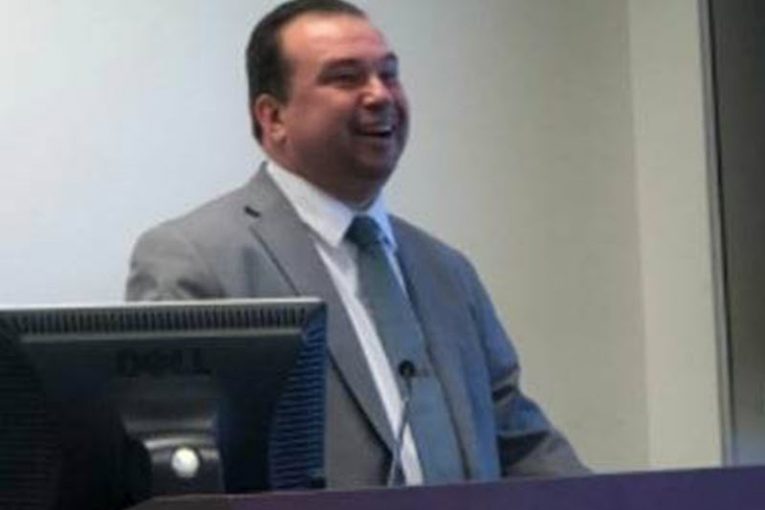

By Jeffrey Deskovic
“Looking back” will feature reprints of articles that Jeff previously wrote while a columnist at The Westchester Guardian, which encompass topics that are applicable here in CA as well as across the country and not simply applicable to NY.
Miranda v. Arizona was the Supreme Court’s 1966 watershed case upholding the Fifth Amendment right not to incriminate oneself. Under the Miranda rule, police must tell suspects they have the right to remain silent, and if they waive that right, anything they say can be used against them in court.
On Tuesday, June 15th, the Supreme Court ruled 5-4 in Berghuis v. Thompkins it is no longer enough to remain silent after having been told of your right to do so. Now, suspects in police custody must say out loud they wish to remain silent to invoke their right against self-incrimination.
Van Chester Thompkins was charged with the murder of Samuel Morris who was shot and killed outside a mall in Southfield, Michigan, on January 10, 2000. Thompkins was given his Miranda warning and told he had a right to remain silent. He then did just that. Detectives continued questioning him, however, and pressed him to say whether he “prayed for forgiveness for shooting that boy.” At one point, Thompkins answered, “Yes.” The answer was used against him at trial over his lawyer’s objection.
Once a suspect invokes his Miranda right to remain silent, police should not question the suspect any further. According to SCOTUS Wiki, an online encyclopedia about Supreme Court cases, the precise issue on appeal was whether the Miranda rule can “prevent an officer from attempting to non-coercively persuade a defendant to cooperate where the officer informed the defendant of his rights, the defendant acknowledged that he understood them, and the defendant did not invoke them but did not waive them.”
Translated into everyday language, this means that, after police tell a suspect he has the right to remain silent, is his response by remaining silent sufficient to invoke  his Fifth Amendment right? Or must the suspect tell police out loud, “I wish to remain silent”?
his Fifth Amendment right? Or must the suspect tell police out loud, “I wish to remain silent”?
Justice Kennedy wrote the majority opinion joined by Justices Roberts, Scalia, Thomas, and Alito. Kennedy and said that “a suspect who has received and understood the Miranda warnings, and has not invoked his Miranda rights, waives the right to remain silent by making an uncoerced statement to the police.”
Newly-appointed Justice Sotomayor authored the dissent, and was joined by Justices Stevens, Ginsburg, and Breyer. The dissent noted the majority opinion creates a kind of paradox. “A suspect who wishes to guard his right to remain silent,” she wrote, “must, counter-intuitively, speak.”
Supreme Court decisions impact the entire country. The Fifth Amendment is designed to protect Americans against overzealous law enforcement. Courts must jealously guard against erosions of Miranda even if a consequence is that some criminal cases may end in favor of the accused.
The Fifth Amendment’s vital purpose is to ensure that police stay within the legal limits while conducting interrogations. It is bad policy to give law enforcement excessive power over citizens, lest all liberty disappear and America turn into a police state. As illustrated by wrongful conviction cases I wrote about recently, police coercion leads to false confessions which frequently translate into wrongful convictions.
False confessions are a common phenomenon now widely studied and documented. The Fifth Amendment, when invoked by a suspect and respected by law enforcement, goes a long way to ensure false confessions do not happen. Many reforms sought by anti-wrongful conviction advocates, including me, revolve around the Fifth Amendment.
Once police read a suspect his rights, questioning should end unless the suspect unequivocally says he wants to waive his rights and talk. If not, then anything a suspect says without having unequivocally waived his rights should be excluded from evidence. Otherwise, police can play word games with suspects and make a mockery of the Fifth Amendment.
Steven Shapiro, Legal Director for the American Civil Liberties Union, said in a letter to the New York Times: “Our position is that a suspect’s constitutional right to remain silent, which Miranda was designed to protect, must be respected unless it is clearly waived, either orally or in writing.”
In previous columns, I called Sotomayor to task for affirming my wrongful conviction; exalting procedure over innocence demonstrated by DNA; her role in the Paul Cote case well known to readers of The Guardian, and her reputation for being pre-disposed against defendants. In this case, however, she had the better argument.
Jeffrey Deskovic, Esq, MA, is an internationally recognized wrongful conviction expert and founder of The Jeffrey Deskovic Foundation for Justice, which has freed 9 wrongfully convicted people and helped pass 3 laws aimed at preventing wrongful conviction. Jeff is an advisory board member of It Could Happen To You, which has chapters in CA, NY, and PA. He serves on the Global Advisory Council for Restorative Justice International, and is a sometimes co-host and co-producer of the show, “360 Degrees of Success.” Jeff was exonerated after 16 years in prison-from age 17-32- before DNA exonerated him and identified the actual perpetrator. A short documentary about his life is entitled “Conviction“, and episode 1 of his story in Virtual Reality is called, “Once Upon A Time In Peekskill“. Jeff has a Masters Degree from the John Jay College of Criminal Justice, with his thesis written on wrongful conviction causes and reforms needed to address them, and a law degree from the Elisabeth Haub School of Law at Pace University. Jeff is now a practicing attorney.

